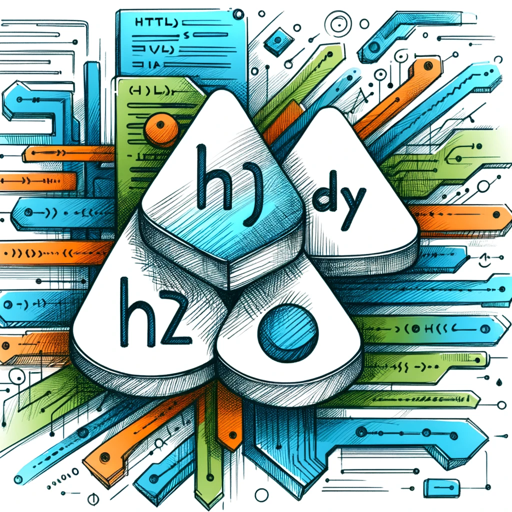文献查找-academic literature search tool
AI-powered academic literature search
帮我查找最新的人工智能研究文献。
如何判断一篇文献的影响力?
推荐一些关于量子计算的权威文献。
如何获取某篇文献的全文?
Related Tools
Load More
Citation and Reference Finder
Paste a given sentence or assertion, and the Citation and Reference Finder will generate citations from academic journals that support the assertion. Example: "Intralesional kenalog has been found to be helpful in treating itch and pain in areas of scar t

中文学术助手
全面的学术研究和写作助手,提供专业文献检索教程、多语种翻译、数据分析等服务。
Academic Paper Finder
Search for academic papers from millions of sources on the internet, simply describe your idea or question and get relevant papers
论文选题门诊

EBM SEARCH
Finds, summarizes EBM literature, suggests keywords and search strategies.

References Finder
Lists references and links for scientific texts
20.0 / 5 (200 votes)
Introduction to 文献查找
文献查找 is a specialized AI service designed to assist users in efficiently locating academic literature. It leverages advanced search techniques, natural language processing, and machine learning to deliver precise and relevant results. The core purpose is to simplify the process of finding and evaluating academic papers, articles, and other scholarly resources. By integrating real-time data updates, multi-language support, and intelligent filtering, 文献查找 ensures that users can access the latest research across various disciplines. For example, a researcher looking for recent studies on quantum computing can use 文献查找 to find peer-reviewed articles, preprints, and related research quickly and accurately.

Main Functions of 文献查找
Real-time Data Updates
Example
A scientist needing the latest studies on COVID-19 variants can access the most recent publications and preprints.
Scenario
During a rapidly evolving situation like a pandemic, having access to the latest research is crucial. Real-time data updates ensure that users are not relying on outdated information.
Multi-language Support
Example
A historian researching ancient Chinese texts can find relevant literature in both English and Chinese.
Scenario
Researchers often need to access sources in multiple languages to get a comprehensive view of a topic. Multi-language support expands the scope of accessible literature.
Intelligent Filtering and Sorting
Example
An engineer searching for papers on renewable energy can sort results by relevance, publication date, or citation count.
Scenario
This function helps users quickly narrow down search results to the most pertinent studies, saving time and enhancing research efficiency.
Ideal Users of 文献查找
Academic Researchers
Professors, PhD students, and other academic researchers who need access to a wide range of scholarly articles for their research projects. They benefit from precise search capabilities and up-to-date information to support their studies and publications.
Industry Professionals
Professionals in fields such as biotechnology, engineering, and data science who require access to the latest research to inform their work. They use 文献查找 to stay abreast of new developments, innovations, and best practices in their industries.

How to Use 文献查找
1
Visit aichatonline.org for a free trial without login, also no need for ChatGPT Plus.
2
Enter your research topic or specific query into the search bar to begin.
3
Use advanced search filters to refine results by date, relevance, citation count, and language.
4
Review the search results, accessing full texts where available or summaries and metadata if not.
5
Save or export relevant documents and references for your research, utilizing integrated tools for citation management.
Try other advanced and practical GPTs
HTML GPT
AI-powered HTML code generator

Coloring Page Creator
AI-powered custom coloring pages for everyone

Ask All About Marketing
AI-powered marketing insights at your fingertips.

Modern Stoic Addict
AI-powered philosophical wisdom for modern challenges.

Federal Resume Builder
AI-powered federal resume generator.

Gecko Tech Prompt and help for co-pilot
AI-driven assistance for smarter work.

InvestGPT | Stock Investment & Trading | 美港股投资助手
AI-Powered Stock Investment Insights

15分鐘寫出爆紅千字文|寫作幫手
Write faster, smarter, with AI.

Sex Education
AI-powered sexual health education

Common Lisper
AI-powered Common Lisp learning tool.

Joseph /Legal
AI-Powered Legal Solutions for Professionals

JustSQL (BigQuery Edition)
AI-Powered SQL Generation for BigQuery

- Academic Research
- Literature Review
- Citation Management
- Data Collection
- Knowledge Discovery
Common Questions About 文献查找
What databases does 文献查找 search?
文献查找 integrates with a wide range of databases including PubMed, IEEE Xplore, ResearchGate, arXiv, and various university libraries, providing comprehensive access to scholarly articles across disciplines.
How can I access full-text articles?
Full-text articles can be accessed directly if available in open access. For subscription-based content, users can often access through institutional logins or request through interlibrary loan services.
Can 文献查找 help with citation management?
Yes, 文献查找 offers integrated tools for managing citations, including exporting references in various formats and direct integration with citation management software like EndNote and Zotero.
Is it possible to search for articles in multiple languages?
Yes, 文献查找 supports multi-language search capabilities, allowing users to find scholarly articles in different languages and improving global literature accessibility.
What kind of search filters are available?
Users can filter search results by relevance, publication date, citation count, author, journal, and language, among other criteria, to find the most pertinent research.